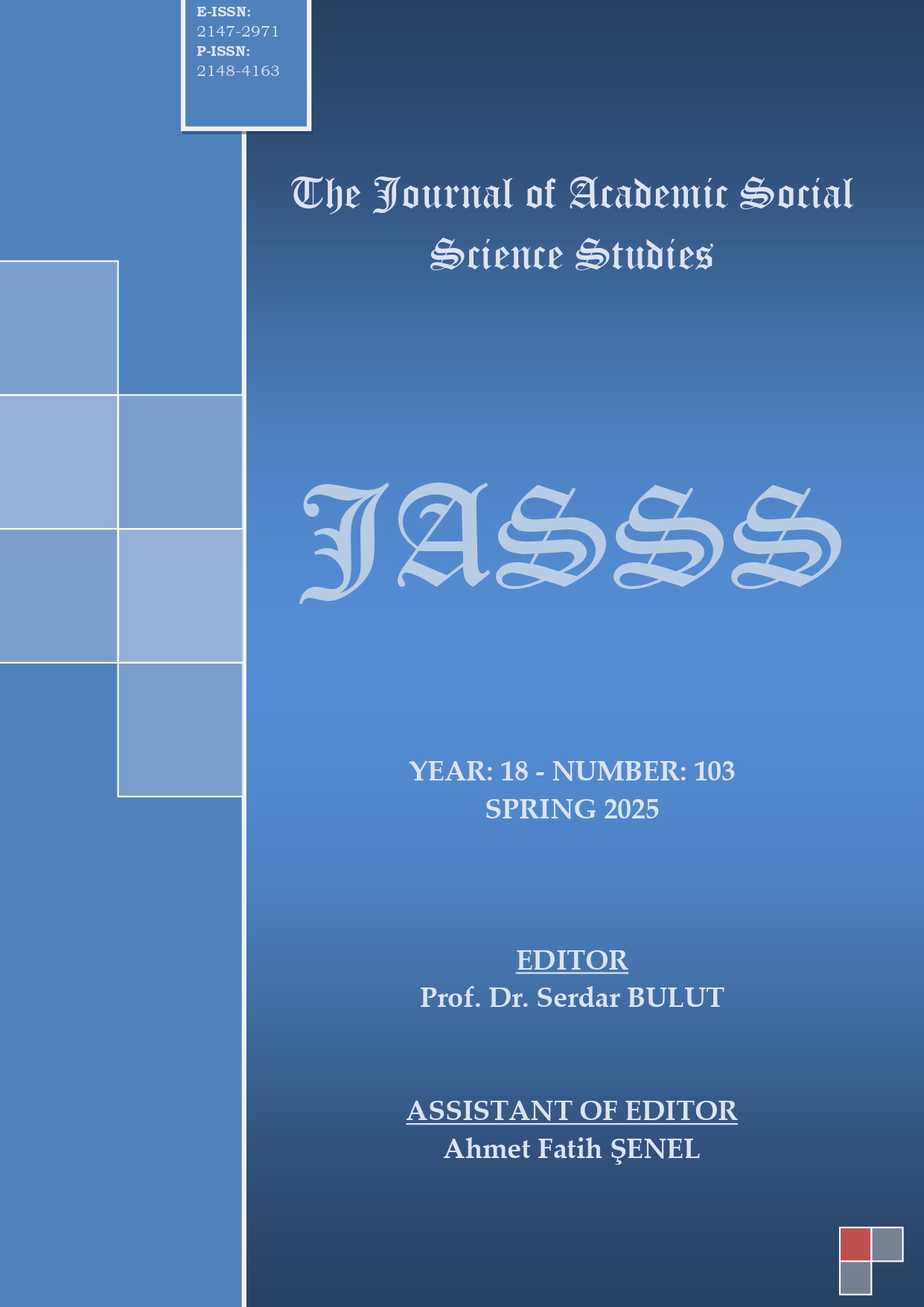Author :
Abstract
Teorik gelişimini modern dönemde tamamlayan ve çeşitli disiplinlerle entegre olup evrensel bir değer haline gelen empati olgusunun Kur’ân perspektifinde nasıl şekillendiği bu çalışmanın konusunu oluşturmaktadır. Yaratılıştan itibaren insanda var olan ve hayatın bütün evrelerinde birtakım duygu ve davranışlarla ortaya çıkan empati, diğer pozitif duygular gibi Kur’ân’da kendine yer bulmaktadır. Ancak bu duygu Kur’ân’da salt soyut formuyla değil çoğu zaman diğer ahlakî değerlerle bütünleşerek olay ya da olgular üzerinde somut bir biçimde ortaya konulmaktadır. Dolayısıyla ideal toplum inşasında olmazsa olmaz temel insanî değerlerden biri olan empati, Kur’ân’ın anlam dünyasında daha özel bir konuma sahiptir. Bunun somut örneğini İfk olayı hakkında nazil olan Nûr Suresi 11-20. ayetlerinde verilen mesajlarda görmek mümkündür. İslamiyet’in ilk dönemlerinde yaşanmış önemli hadiselerden biri olan söz konusu olay üzerinden genelde insanlığa özelde ise müminlere dinî, içtimaî, hukukî, psikolojik son derece hayati mesajlar verilmektedir. Bu mesajların bir kısmının doğrudan empatiyle ilişkili olması hadisenin bu açıdan incelenmesini önemli kılmaktadır. Bilhassa bunların Hz. Peygamber ve ailesinin itibarını hedef alan spesifik bir olay üzerinden verilmesi, konuyu daha da dikkat çekici hale getirmektedir. Kaldı ki İfk olayı şahısları itibarsızlaştırmanın ötesinde çok daha özel amaçlar taşımış özellikle de Hz. Peygamber’in risalet görevi etrafında derin şüpheler meydan getirerek İslam’a zarar vermeyi hedeflemiştir. Araştırma konusunun boyutları dikkate alınarak öncelikle empatiyle ilgili teorik bilgilere yer verilecek akabinde modern dönem empati algısının ilgili ayetlerdeki yansımasının nasıl olduğu ya da hangi ölçüde temsil edildiği interdisipliner ve analitik bir yöntemle ortaya konulmaya çalışılacaktır.
Keywords
Abstract
The main purpose of this study is how the phenomenon of empathy, which completed its theoretical development in the modern period and integrated with various disciplines and became a universal value, is shaped in the perspective of the Qur'an. Empathy, which has existed in human beings since creation and emerged with various emotions and behaviours in all stages of life, finds its place in the Qur'an like other positive emotions. However, this emotion is revealed in the Qur'an not only in its abstract form but often in a concrete form on events or phenomena by integrating with other moral values. Therefore, empathy, which is one of the basic human values indispensable in the construction of an ideal society, has acquired a more special meaning in the world of meaning of the Qur'an. It is possible to see a concrete example of this in the messages given in verses 11-20 of Surat al-Nūr, which was revealed about the incident of Ifk. Through the incident in question, which is one of the important events that took place in the early periods of Islam, religious, social, legal and psychological vital messages are given to humanity in general and believers in particular. The fact that some of these messages are directly related to empathy makes it important to analyse the event from this perspective. In particular, the fact that these messages are given through a specific event targeting the reputation of the Prophet and his family makes the issue even more remarkable. Moreover, the incident of Iffq had much more specific purposes beyond discrediting individuals, and in particular, it aimed to harm Islam by raising deep doubts about the Prophet's mission of prophethood. Considering the dimensions of the research subject, firstly the theoretical information about empathy will be given, and then it will be tried to reveal how the perception of empathy in the modern period is reflected in the relevant verses or to what extent it is represented by an interdisciplinary and analytical method.





